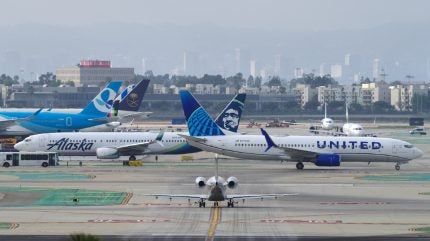
United Airlines has raised concerns about the merger of Alaska Air and Hawaiian with the Department of Transportation (DoT) in a move that could damage the $1.9bn deal, as it entered its final stages.
A government filing revealed United’s Chief Legal Officer Robert Rivkin voiced concerns about the deal’s effect on the airline’s existing agreements with Hawaiian during a meeting with the DoT.
The surprising report comes weeks after Alaska and Hawaiian’s deal passed the Department of Justice (DoJ) review of their merger when the government opted not to challenge the agreement.
That was despite anticipation the DoJ would inspect the potential competition concerns the merger has raised, after it stepped in to derail JetBlue’s failed acquisition of Spirit.
The DoJ’s decision means the deal now only requires interim approval from the DoT for required route transfers before Alaska can finalise the takeover, which would see Hawaiian’s operations brought under its control while keeping the airline brands separate.
United’s opposition to the deal focuses on its relationship with Hawaiian, which currently allows customers to earn rewards on its MileagePlus loyalty programme while flying on qualifying inter-island codeshare flights in Hawaii, operated by the local airline.
While Alaska will likely have been expecting any opposition to come from the government, concern about the impact of its proposed merger on Hawaii’s air travel market will be unsurprising given the company would have a more than 50% share of the market if the deal is approved.
Neither airline involved has commented on United’s concerns, but Alaska has previously tried to assuage similar fears by claiming the proposed merger would “expand choice of critical air service options and access” in the Pacific region and increase loyalty programme benefits for customers.
The initial announcement about the Hawaiian deal in December also revealed that while the airlines would remain separate brands, their loyalty programmes would be combined into a new “industry-leading” scheme connected to the Oneworld Alliance, of which United is not a member.



